It’s been almost a year to the day since we sat down with James Norton, at the Berlin film festival, to discuss his role in Agnieszka Holland’s biopic Mr. Jones, and yet the themes resonant just as much today as they did then, as we discuss the notion of fake news, the importance of journalism, and comment on Brexit, Bond and everything in between.
Did you shot on this harsh location?
Yes, we really did. We happened to land in Ukraine just as the Beast from the East arrived. My friends in London were texting saying ‘it’s minus five’ and I was like, f**k you, it’s minus 15 here. It was so cold, and snow up to our waist. Obviously I wasn’t wearing a coat, I was wearing a costume, and we found an old, genuine peasants coat, but it was chilly. But it was also so wonderful to film in those kind of conditions, those shots of him walking in the snow, with the smoke and the sound effects, that was all real. It really allowed us to go on Gareth’s journey with him, as it wouldn’t have been similar conditions to when he was there. And being in Ukraine, being in those villages, it was so eerie and poignant, a lot of them haven’t really been touched since the famine. To be there where it happened and to be surrounded by a cast of supporting artists and actors, a lot of whom were Ukrainian, who have a very powerful relationship with that particular part of history, it was amazing, and it made me very quickly aware of the responsibility we had to tell that story. But it was also very hard.
How shocking was it for you when you originally read the script? How much did you know about the famine?
Not much, embarrassingly. Which is why this film is important. I didn’t know who Gareth Jones was, I’d never heard of him, nor had most people I know. His story hasn’t really been told. His stories were discredited by a Soviet ploy and a journalist who claimed to have stories, and didn’t. So Gareth’s story was kind of forgotten until the 80s, really. Someone asked me before, did Gareth Jones win? Which is quite a good question because he was vindicated in telling the truth, but only now really is that victory happening, in this movie, the fact we’re having this conversation, and the fact people are now becoming aware of who he was. But in regards to the Holodomor, embarrassingly no, I didn’t know much about it. I did European history and the Second World War and a lot of my school lessons were spent learning about the Holocaust, but the Holodomor, because of the way the world has reacted to it, and the fact many governments still don’t recognise it as a reality, thee’s still an upward battle to have it recognised. Which is why everyone we met in Ukraine were thankful to us for telling this story, they want this story out there. It was a very sobering and sometimes harrowing journey to go on when understanding that particular part of history, but it’s something I’m pleased we’ve done and it’s an important journey to go on.
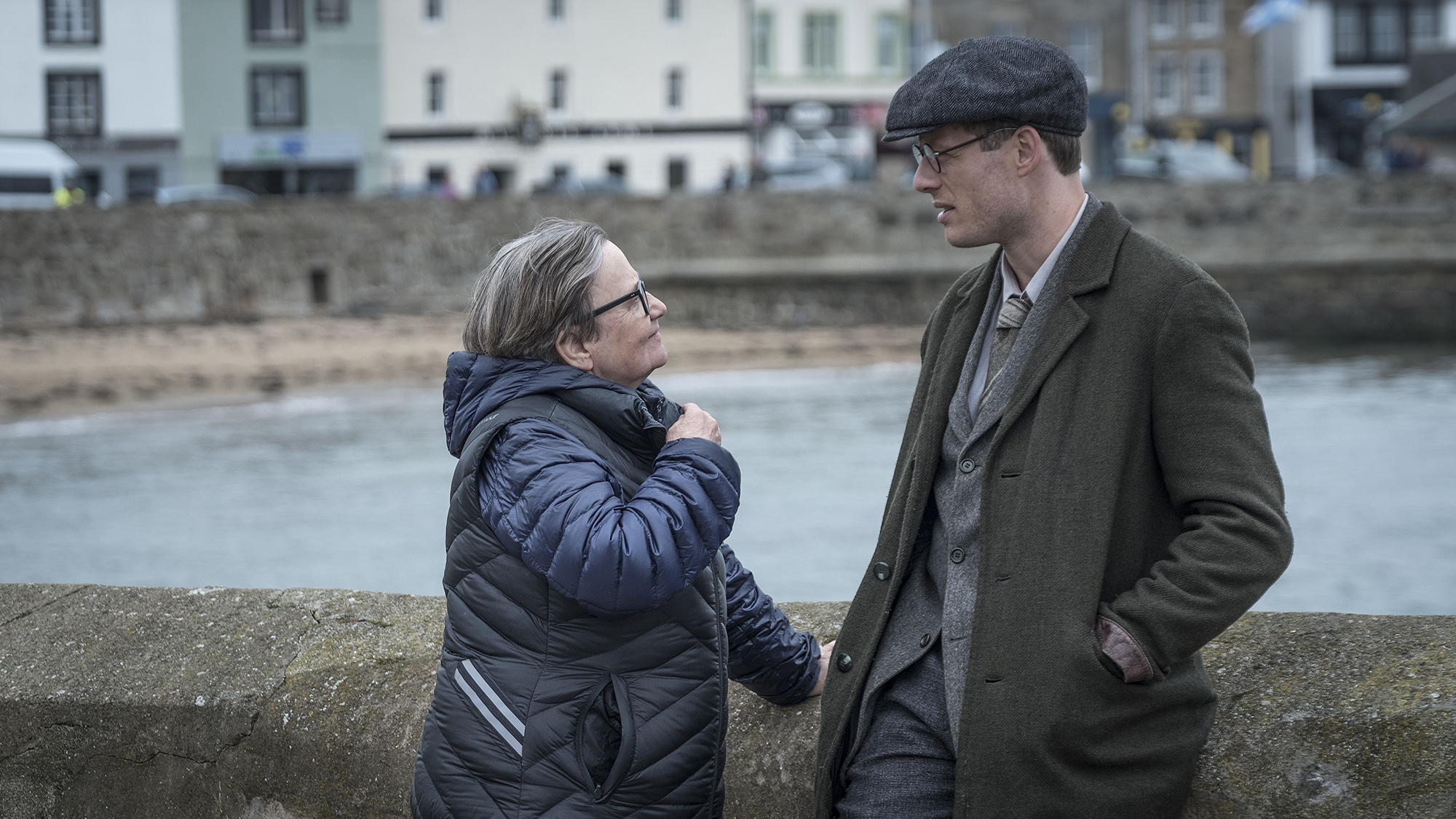
What can us journalists learn from people like Gareth Jones?
Right now his stories are the ones we should be telling, about incredible journalists who put their life on the line in the pursuit of the truth and the greater good. We should concurrently be telling the stories of current day, heroic journalism because there’s so much noise from certain leaders of the free world about fake news and journalists being scum, and right now we’re all aware of how concerning and complicated and fearful the noise is, and we need journalism now more than ever to cut through that noise and provide us with some sort of clarity, in this revolution of information that we’re experiencing with social media. The role of the journalist is obviously more important than ever. If this film can inspire another Gareth Jones out there it would be a wonderful thing. Though I’m not sure there are many people brave enough. But we need to find stories that nurture an encourage and celebrate modern day journalists.
Have your experiences making this film changed your attitudes to contemporary life and politics?
Yeah. You’ve got half an hour with Agnieszka, I had two and a half months with her. That changed me in every way. I’m currently living in a world consumed by Brexit, every day I digest so much news and panic and fear about our particular situation, but doing a film in Poland and Ukraine, with Polish and Ukrainian crews, is that everyone has a Brexit going on. Whether it’s Hungary, or Poland or Ukraine. I’d never been in a country where this was literally a war-zone. To experience something so close, to see service men come back to Kiev missing limbs, that was a real eye-opener for me. Agnieszka is so knowledgable and knows everything about every situation in every country, unlike me in my little Brexit echo chamber, she is very clued up and instinctive and is very clear with her views. She’s also very honest and says that it’s dark. The words we use to describe the 1930s’ uncertainty and fear and the manipulation of the truth and the press, maybe the terminology has changed, but now we talk about echo chambers and fake news, but the tone is the same, and she’s one of the few people I’ve met that says, this is that dark. We felt like we’d reached the pinnacle of liberal democracy under Obama, but actually we’ve not, we’ve got really complacent we thought we’d never turn into the 30s and we suddenly are. And I’ve not met anybody who is that honest about it. Then at the same time she’s also more hopeful than anyone else. In the UK we’re fighting this sense of fatalism and giving up, and the young generations don’t know what there is to fight for anymore, and while she’s the most brutally honest and dark about it, she’s also the most inspiring, she’s the one who stood in front of the military police in Warsaw. It’s an incredible photo of Agnieszka Holland standing there, a lone woman, and then all these men in shields. She’s an inspiration. If I can take a little bit of her magic, then I’ll have changed a little bit for the good.

The film is celebrating the truth, that’s it’s main prerogative. But I was wondering how you went about finding the truth of the character? There’s not a lot about him out there, we have his articles, but there’s only so much you can learn from his personality through that. Did you feel more of a responsibility than ever before to really get to the truth of the character, because of his pursuit?
Yeah. You do definitely have a responsibility. Some actors talk about it being kind of limiting because you have to honour that person, but I think the opposite. Usually you only have the script to go on, but there is a lot out there on Gareth, more than just his articles. There’s a website compiled by all of his family members and it has every page of his notebooks, photographed. It’s kind of eerie for me. His writing is as untidy as mine. You could occasionally see bits of text and he was there at that moment writing what he was seeing. That was awe-inspiring and crazy for me, it made him feel very close. From the performance point of view what I found most useful were some of the anecdotes we were given from family members. Not in the books, which made him seem like quite a serious, earnest young man, spectacled and always writing in his notebook. But the stuff that wasn’t written down, the verbal accounts, like his great niece, she remembers him being this Labrador, a child, kids loved him. Like a little boy scout with his incredible, boundless energy, so we tried to use that a lot and talked about the momentum in Gareth, he never wanted to sit still. He wrote in his book that he cant stands people who sit down in life, they have to be moving. He had a boyishness. He was incredibly brave, but also incredibly naïve. There’s a little but of the Alex from Free Solo in him, that solitary, lone wolf, taking these absurd risks.
You said you were thanked in Ukraine for making the film, but in Russia do you think the film will be seen as this is a story they’ve pushed under the carpet?
It’s a real shame because the misconception a lot of the world has is that there isn’t an appetite for this kind of movie in Russia, but of course there is. There are millions of people in Russian who will want to see this movie. They’re not all totally ignoring what happened. Same as colonial Britain, we have questions to answer for and there are darker parts of our history and there are better parts of our history. Many Russians are aware of that, I know that for a fact. Maybe there are some, like in every country, who are blind to the fact they are responsible for certain crimes. So ironically, the most important place for this film to ever be shown would be Russian. But it probably won’t be seen far and wide, but I hope the appetite for this type of conversation in Russian will mean that it’s seen by certain people but it will probably be seen by people who live in that echo chamber already and it won’t really make a big difference. Russian is a very complicated country and I don’t claim to understand or know, certainly as much as Agnieszka does, but she said at the press conference, when asked about the polls that saw Stalin be the most popular leader of Russian. That’s so shocking and so distressing to hear. Agnieszka in her truly characteristically honest fashion said that it’s the equivalent of saying Hitler was the best leader in Germany, the two are the same for her. That’s a bold statement but just shows how distressing it is and how confusing it is, to see a country choose, and this is again borrowing her words, but choose to not be free. But the incredibly important, and probably the most important place it can be shown is Ukraine. This is a very important story for them, to see that it’s being made and not being made by Ukrainians, but an international crew, a British and Polish co-production. For them to see that the rest of the world, maybe not Russian, but other countries are recognising their plight, that’s a good thing. Whether it makes any difference in Russia? Probably not, sadly.
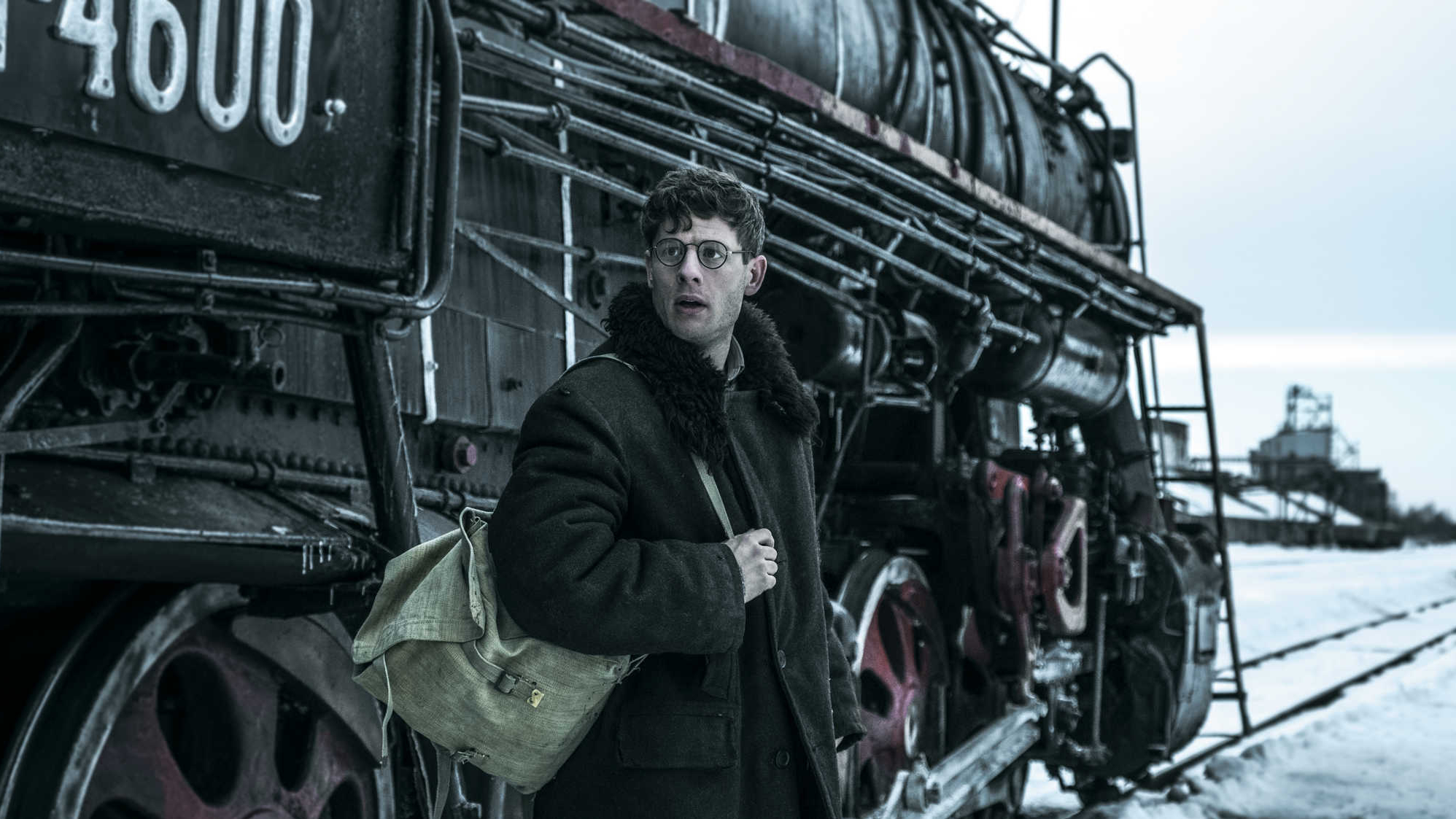
Talking of pressure, did you feel any playing John Brooke in Little Women? It’s a book so many people love. It’s a different responsibility and a different challenge I guess?
Yeah, I feel you have a little more artistic freedom when taking on a role from a book because the definition of a novel is that everyone applies their own imagination. I might see John Brooke a little differently to you, so my interpretation of him in Little Women might not be to everyone’s tastes, but it will be my own instinct. Whereas with Gareth I apply a little bit of myself, and I find what we share to get into his mind to empathise with, as it’s all about empathy. But ultimately if I start to really take artistic licence then his family members or people who did know Gareth, would understandably be upset and offended. So in that sense there is less artistic freedom with a real life person. The problem with something like Little Women is that everyone knows and loves the book, and also it had been made a few times, so there are already two or three incarnations of that character, at least. I don’t really watch previous versions, I didn’t watch any other Little Women, because it can get confusing and you start to play the role from the script and the role from the other film, it’s a schizophrenic mess.
Why is it important for every generation to have their own Little Women?
I have no idea, that’s a good question. I guess those books are so important, in America it’s such an important novel, that coming-of-age, not just for the girls but as a country during the Civil War and then emerging from it. It’s the equivalent of our Hamlet. You get at least one Hamlet a year in London, often three or four. I guess the reason we return to these texts is because they capture some part of our culture, and Little Women is that for America.
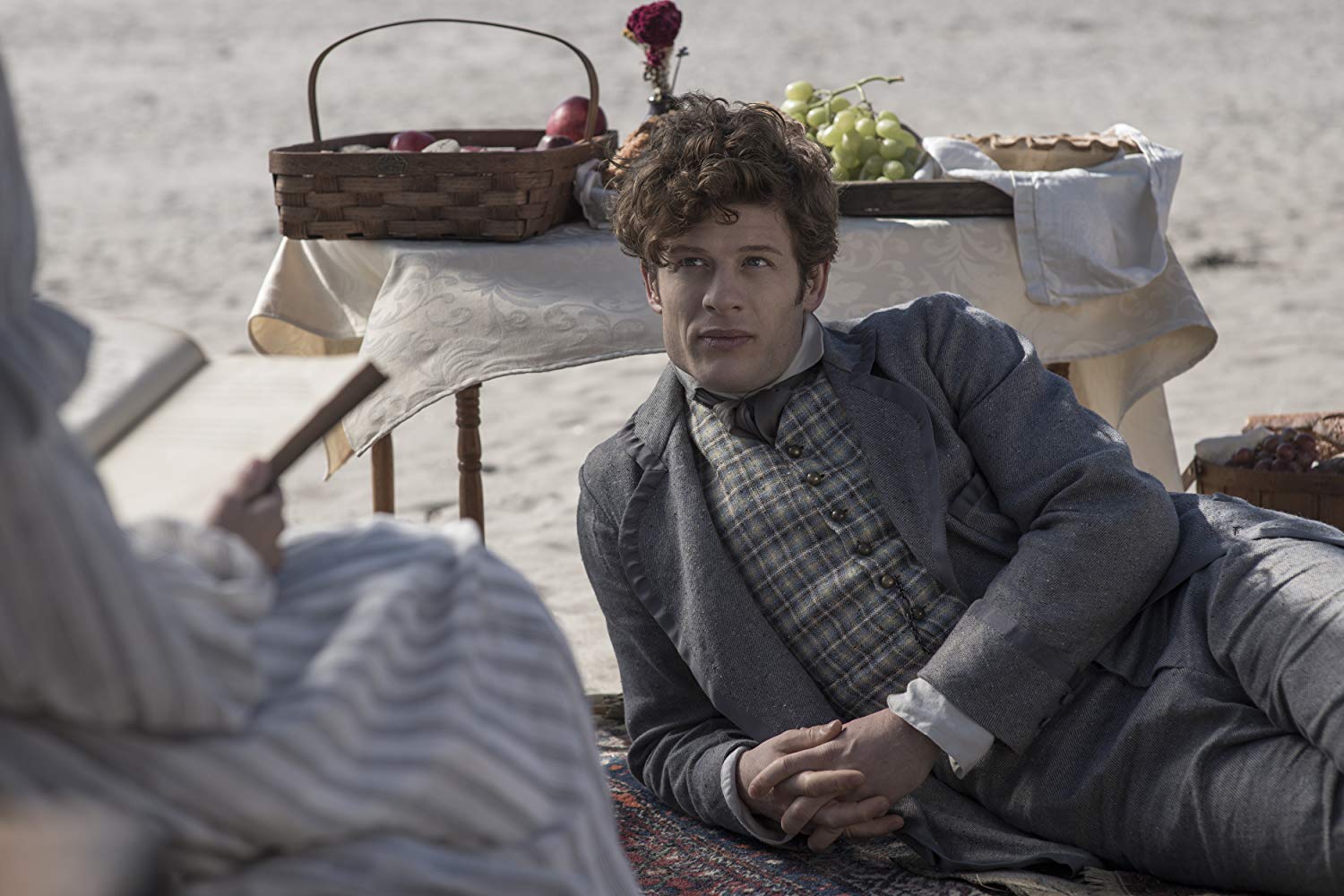
Could these roles change your career? To start making less television and more films?
I would love that. I’ve taken a more traditional route but the landscape is changing now, more and more film actors are moving to television. Traditionally obviously you started with theatre, then did more television and then graduated into film. It’s now easier and easier because people recognise that it is ultimately the same medium. Whilst TV is having a golden age, of course there is this prestige attached to cinema. It’s not a coincidence that we have these film festivals, TV doesn’t have any festivals. The fact that at the Golden Globes the film actors sit in the middle and the TV actors sit on the outside. There is something about the hour and a half, two hour journey. Someone asked me what my first childhood memory was going to the cinema and I was thinking about that feeling as a child going into that black cabin, the smell of the popcorn, there’s something so childish and deeply romantic about that and you don’t get that when you sit down in your bedroom to watch your TV at home. There’s something about that particular form of storytelling in movies that I’m now really excited to be allowed in to, and I’d love to do more films. I don’t want to not do TV I love it and I love the opportunity to play a role over six or eight hours, that sense of development, which you don’t get in film, but to be working with these guys, to do a film with Paul Thomas Anderson for example, if they’ll have me I’d love to do it.
With that in mind, as someone who cherishes the cinema-going experience – how would you feel if you did make a movie and it was sold to someone like Netflix, would you lose that sense of why you wanted to make a film? Is it just about the experience making it, or is it coupled with the experience of sitting in the cinema and watching it?
That’s a good question because for me my relationship with cinema is two-fold, on the one hand it’s the way I digest it, which for me is going to the cinema. But the other hand is the making of it. I love film partly because of the challenge of creating that story, and that whole new world within a two hour window. But I think the world of film and TV is in such flux and the playing field is being redefined so if you make it for Netflix, it may be a Roma and make it to the cinemas anyway. People have the choice and are allowed to digest it in the way they want, and that’s the main thing.
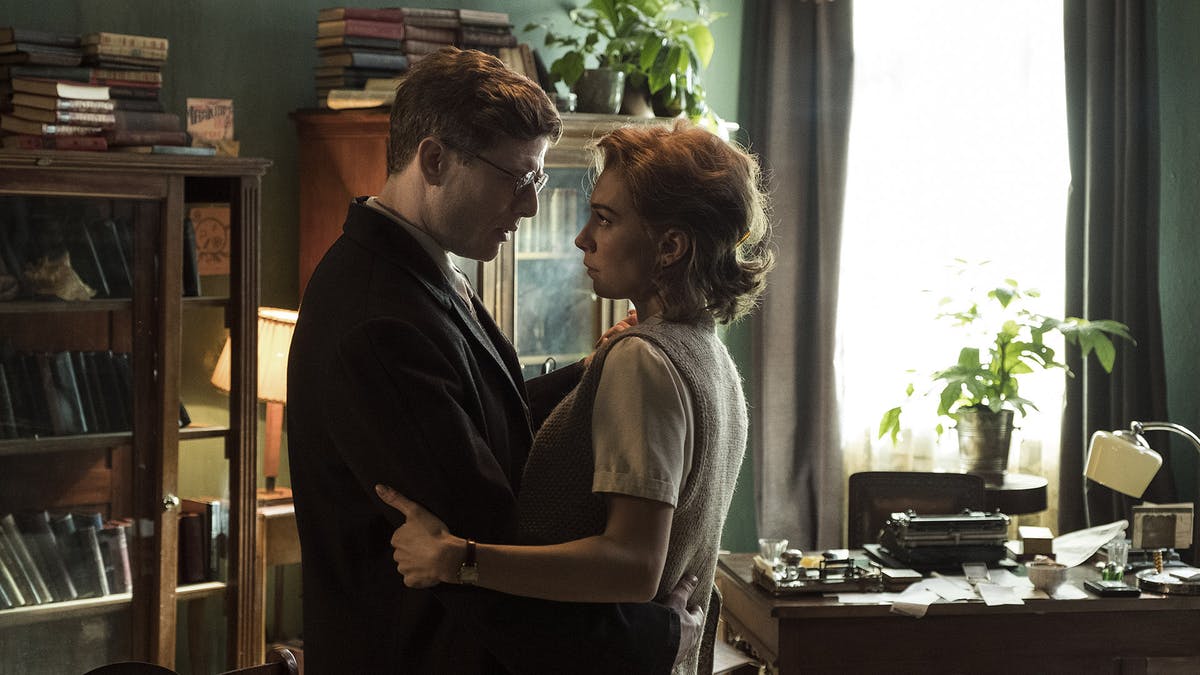
So, you’re often touted as being the new Bond. Do you have any comment on that?
Only that they are rumours, and I’ve said this many times, but it’s very bizarre and complimentary and lovely. If you told me ten years ago I would be in the same conversation as someone like Idris Elba and Michael Fassbender I wouldn’t believe you, so in that sense it’s a lovely thing. But beyond that, the bizarre and complimentary thing, it is just rumours. The British press love to speculate on Bond, it’s unreal how much. It’s insane how much. I don’t think it’s based on anything the Bond estate is very discreet and certainly I don’t know anything. The press seem to know a helluva lot more than me.
But you’d be keen to make films like that, big-budget Hollywood fare?
Yeah, Bond aside because that’s a whole other question, but would I like to do an action movie in a wider sense? Then yeah, I’m up for everything. For me it’s all about new experiences, and some actors feel reassured and safe in a reoccurring role of a series or a soap, but for me I feel like acting is a great opportunity to engage with particular parts of history. My relationship with the whole Holodomor is not just an academic one, I actually walked through those villages and had the smallest emotional taste of what that might have been like. That’s what I want to do, and so if the action movie is a new adventure and would take me somewhere else and into a new headspace and give me a new challenge, then I’d be up for it.


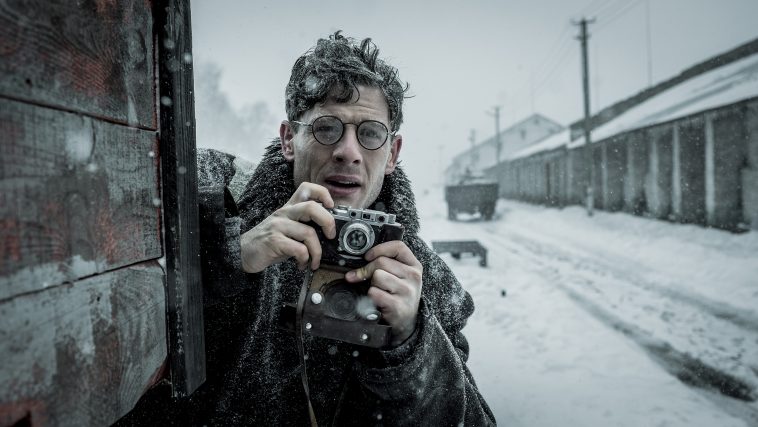
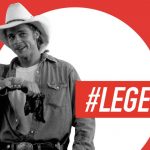
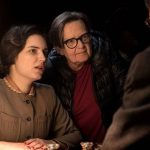















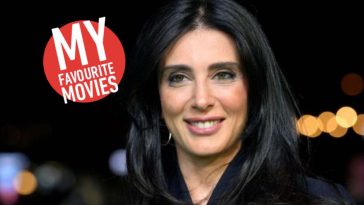






Leave a Comment